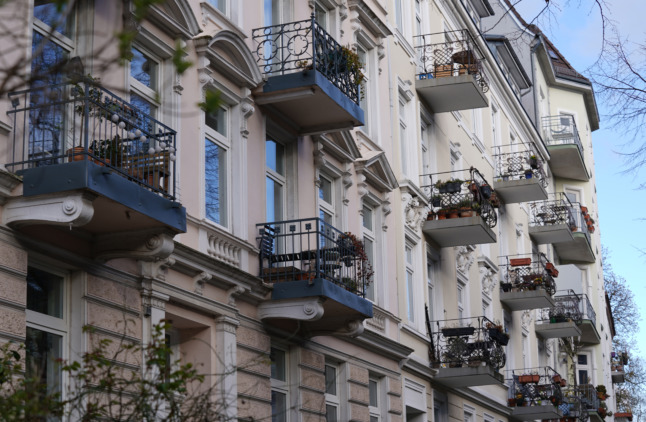Nearly three million football fans are expected to descend on Germany for the UEFA Euro tournament this summer. A total of 10 cities across Germany will field matches for the Euros.
This map on UEFA’s website shows the German cities where games will be taking place during the tournament, which runs from Friday June 14th to Sunday July 14th, 2024.
The event has many people wondering if they could earn some extra cash by renting out their homes to tourists. Here’s how you can prepare to rent out your home and stay in line with the rules.
READ ALSO: Euro 2024: Germany to sell cheap train tickets for fans attending games
Can I put my home on rental platforms like Airbnb in Germany?
Yes, Airbnb is not outlawed in Germany. But depending on the state there may be some additional regulations to keep track of.
What rules do Airbnb hosts in Germany follow?
All rental hosts are required to collect and retain information about guests who stay at your property for three months or less. Hosts can either purchase reporting certificates online or create certificates themselves to meet this requirement. If you retain the guest data yourself, you will be required to comply with all data protection laws like the European General Data Protection Regulation (GDPR).
READ ALSO: What to know about renting out your home as an Airbnb in Germany
Depending on the state and city, local authorities may have additional requirements for rental hosts.
The tournament kicks off in Munich. The Bavarian city’s regulations allow you to rent your primary home to guests for a combined total of eight weeks per calendar year without a permit. Still, you could run into trouble if more than half of the floor space is rented out without a permit.
Berlin has strict regulations regarding short-term rentals. There are no limits for primary residences, but you are required to receive permission from district offices. The city introduced a registration system for anyone interested in renting out part of their home for a short term period.
If less than half of the space will be rented out, you’ll need to update the relevant district authority of your plans to receive a registration number that you must include when advertising the property. You are required to obtain a permit if you plan to rent more than half of your home.
READ ALSO: Could a landmark court ruling help solve Berlin’s housing crisis?
Hamburg also has implemented a registration system to monitor the number of holiday rental homes listed on sites like Airbnb. It doesn’t cost money to get a registration number, and you are allowed to rent out a room for eight weeks or less per year.

Can I rent out my flat if I don’t own it?
If you’re renting a property in Germany, subletting without permission can get you in trouble with the law. Tenants interested in subletting their room or apartment are required to get written permission from their landlord before they can rent their space on platforms like Airbnb and Homeaway.
Do different rules apply to second homes?
Yes, second homes, or places you live in for less than half of the year are governed by different guidelines.
In Germany, secondary residences cannot be rented out for more than 90 days per year. If you live in the flat you may be allowed to rent it out during periods of absence (i.e., when you are travelling), so long as you don’t change the main function of the home to renting.
What about taxes?
German tax law requires rental income to be taxed alongside other incomes. If you receive income in Germany from short-term lets, you are legally required to report the income amounts and file a tax return.
Still, there are a few exceptions. If your rental income in a year is below €520, there are no taxes charged. But if your rental income exceeds €520 then you will be taxed on the entire amount. Of note, tax only considers income to be the profit retained after expenses are deducted.
If you don’t intend to make renting your property a habit, you may be able to classify the income as a “hobby” by the tax office. Under this classification, if you end up bringing in an income it doesn’t have to be taxed, but you also cannot claim any expenses or losses. This policy does not apply to unlimited rentals or properties charging rent at 66 percent of other local rent prices.
Rental property may also be subject to VAT like any other business. But good news, if your rental income does not exceed €17,500 and you don’t expect to earn more than €50,000 in a year, you are not liable for VAT.
What happens if you break the rules?
You can face eye watering fines of up to €500,000 depending on the state you live in. Some cities like Frankfurt are cracking down by employing full time “Airbnb hunters” to look for illegal listings of homes and furnished residences online.
Note that laws are constantly changing, so be sure to check your state’s website for up to date information on short term rental regulations.




 Please whitelist us to continue reading.
Please whitelist us to continue reading.
Member comments